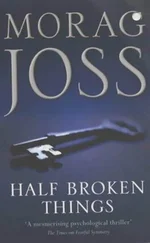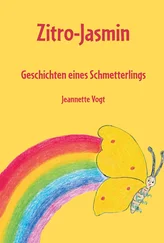There were more rules for teachers than for students, and those bureaucrats were awfully persnickety about you following those rules. Once when I opened my purse in the teachers’ lounge, one of the other teachers saw my little pistol and just about had a fit.
“That’s a gun!” she gasped.
“Barely,” I said. “It’s only a twenty-two.”
Still, she reported me to the principal, who warned me that if I ever brought a gun to the school again, I’d be fired.
“How am I going to protect myself and my students?” I asked.
“That’s what the police are for,” he said.
“Who’s going to protect us from the police?”
“Just leave the gun at home.”
JIM NEVER COMPLAINED, BUTI could tell his job chafed him as much as mine did me. He was bored-a big, broad-shouldered guy sitting awkwardly behind a little metal desk, checking his inventory list and watching the Mexican workers boxing up airplane parts. Jim wasn’t a desk man. He also had a lot of downtime, which he wasn’t used to, and he spent a fair amount of it shooting the breeze with the warehouse bookkeeper, a tarted-up divorcée I did not take to named Glenda. She called Jim “Smithy” and was always asking him to light her cigarettes.
My husband just didn’t see the point of city life, didn’t understand why anyone would want to live like this. So many things about it struck him as contrary to the proper and natural way of the world. Shortly after we moved to the city, they cut down all the orange and cottonwood trees that shaded the streets to make room for more parking. “Seems to me you lose more than you gain,” Jim said.
The simple truth was, he missed the outdoors. He missed the sweat and dust and heat of ranching, the smells and hard labor. He missed the way that ranch life forced you to study the sky and the land every day, trying to anticipate nature’s intentions. On Sundays we took walks in Encanto Park in the middle of the city, and out of habit, Jim continued to be mindful of what the plants and animals were telling him. As fall came on that year, he noticed that the birds were migrating south earlier than usual, squirrels were storing extra nuts and their tails were unusually full, acorns were especially large, the bark on the cottonwoods was thicker, and so were the hulls on the pecan nuts.
“Going to be a hard winter,” he said. The signs were all there. He hoped other people were reading them, too.
And that winter was hard. It came on early, and in January it snowed in Phoenix for the first time in most folks’ memory. Back on the ranch, a blizzard like that would have been a call to action, forcing us to run around collecting firewood, bringing in the horses, and carting hay to the range. Jim would build a windbreak to protect the cattle. He’d empty all the wagons out of the garage and make a wall of them between the house and the barn, covering it with tarps, coats, and blankets, then buttressing it with old trunks and anvils and dirt and rocks and whatever he could find. He’d round up as many cattle as could fit into the barn, and when the storm reached us, he was outside on horseback, keeping the cattle moving, keeping their blood circulating. Every couple of hours, he’d rotate a new group into the barn and behind the wall of wagons so they could get a break from the wind and snow.
Living in the city, all we did was turn up the radiator and listen to the hiss and clank of the pipes.
The snow kept falling, and the next day the governor went on the radio, declaring a state of emergency. School was canceled and most businesses were closed. The National Guard was called out to rescue people stranded in remote parts of the state. Jim said he hoped that Boots and Gaiters knew what they were doing. He hoped all the cattle had been moved off the plateau down to the winter range and the hands had broken the ice on the ponds. “The first thing you got to do is break the ice,” he said. “The cattle’ll die of thirst before they starve.”
On the third day of the storm, we got a knock on the door. It was a man from the Arizona Department of Agriculture. Cattle were dying across the state, he said. Ranchers needed help, and the name that kept coming up was Jim Smith. It had taken them a while to track him down, the man said, but he was needed.
Jim threw some heavy clothes into his old army duffel bag, grabbed his hat, and was out the door in less than five minutes.
The first thing Jim did was organize drops of hay. He had a big cargo plane filled with round bales, and they took off into the storm. When they reached the range, the crew rolled the bales out the back of the cargo bay and watched as the hay tumbled through the snow and bounced on the ground.
Since the roads were impassable, Jim asked the government for a small plane and a pilot, and they flew across the state, touching down at isolated ranch houses. Jim explained to the ranchers, most of whom had never seen a blizzard the likes of this one, what to do. You got to break the ice on the ponds, he told them, and cut down the fence wire. Let the cattle roam. They need to move to keep their blood circulating, and they’ll instinctively move south, but if they hit a wire fence, they’ll all press up against it and die. Let them get into big herds and huddle for warmth. You can sort them all out by the brands later.
At one ranch up in the hills, there was no place to land. Jim had never put on a parachute before, much less jumped, but he strapped one on. “Count ten, pull the cord, and roll into the fall,” the pilot said, and Jim heaved himself out of the plane.
The storm had stopped, but the temperatures were still frigid when Jim reached the Showtime Ranch. Even before he landed, he could see from the air that no one had broken the ice on Big Jim. Carcasses of frozen cattle lay clustered along the pond’s edge. When he got to the ranch house, he found Boots and the new hands sitting around Gaiter’s fancy propane stove, their feet up, drinking coffee.
Any muttonhead can run a ranch during good times. You only find out who the real ranchers are when calamity strikes. Those dunces sitting around that stove may not have been able to read tree bark, but at the very least, they should have been listening to the weather reports, and when they heard that a devil of a storm was coming down from Canada, they would have had twenty-four hours to prepare. I would have lit into that fool Boots and those other chumps, but that was not Jim’s way. He did, however, get their sorry butts out and mounted up to cut wire, break ice, and start the cattle moving.
There were thousands of dead cattle lying rock-hard in the snow, piled along the southern fences. Some of the cattle that had survived were so weak they couldn’t walk, so Jim had the men bring hay and water and hand-feed them. He massaged their legs, which were cut from where they’d tried to break the ice themselves, and helped them stand again. If he could get them moving, he knew, they’d live.
Jim was gone two weeks. That whole time I didn’t know where he was or how he was doing, and it was the longest two weeks of my life. When he finally came back, he’d lost twenty pounds. His face and hands were raw. He hadn’t slept for days, and there were dark circles under his eyes. But he was happy. He hadn’t felt this useful since leaving the ranch. He’d been out doing what he was meant to do. He was Big Jim again.
A few days after Jim returned, he got a call from Gaiters. When Jim had been back in Yavapai County during the blizzard, people had told him that Gaiters had been going around referring to him as a “relic” and a “washed-up old geezer.” But that was before the storm. Now Gaiters was so impressed with the way Jim had salvaged what remained of the Showtime’s herd that he offered Jim his old job as ranch manager. He’d even build us our own knotty pine caretaker’s cabin. “You’re the real thing,” Gaiters said.
Читать дальше









